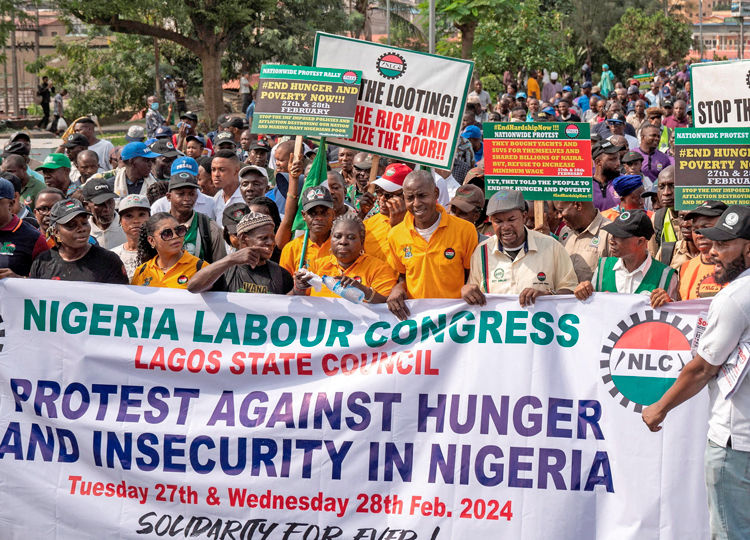Tens of thousands of Kenyans took to the streets last month to protest government moves to raise taxes to meet growing debts to foreign lenders and to appease the International Monetary Fund. Capitalist rulers throughout Africa face the same crisis.
Across the continent, governments are massively indebted to international lenders like the World Bank, the IMF, Washington and other imperialist powers, and, more recently, to the rulers of China. Those in power see no way forward except to push their financial crisis onto the backs of working people while taking on ever more debt to meet growing interest payments.
Worldwide, government debt is expanding, now four times that in 2000. In Africa it’s at a 25-year high, most of it owed to Western creditors and China.
As government debt in the imperialist centers hits its highest since the aftermath of World War II, African rulers and other semicolonial regimes are being pressed to pay more back.
Washington, the IMF, China and other big lenders insist debt service comes first, before spending on jobs, health care, education, housing and other things working people need. For the growing population of young workers in Africa, the situation is a disaster.
In Nigeria, one of Africa’s largest capitalist economies and home to 225 million people, the total debt stands at $91 billion, with interest payments expected to eat up 36% of the country’s revenue in 2024. Moves by President Bola Tinubu to reduce gas and electricity subsidies and devalue the currency have been met by nationwide strikes by the country’s labor unions.
The debt is unpayable
When mass protests broke out in Tunisia in early 2023 over soaring food prices, unemployment and shortages of fuel and basic staples like sugar, vegetable oil and rice, government officials moved to quell them with promises, taking on new loans to do so. The result is this year’s debt payments will be 40% higher than in 2023.
After Angola’s government acceded to demands by the World Bank and IMF to reduce fuel subsidies — almost doubling the cost of gas — thousands of young people, including many motorcycle taxi drivers, protested in Luanda in June 2023. Five died after police attacked the actions.
These governments’ indebtedness is worsened by growing worldwide instability, including deepening conflicts over markets and spheres of influence between capitalist regimes in Washington, Berlin, Paris and other imperialist powers, and Russia, China, Iran and others attracted to the BRICS alliance.
In Africa, these pressures — and the lack of any working-class leadership — contribute to the ongoing civil war in Sudan, military coups across the Sahel region and other government crises.
On June 1 the African National Congress in South Africa — widely denounced as corrupt and a far cry from the organization led by Nelson Mandela that overthrew apartheid — lost its majority rule for the first time in 30 years.
The country’s official unemployment rate is 32%, one of the highest in the world. This disproportionately affects Black workers who face shortages of clean water, electricity and housing. Over 60% of the population lives in poverty.
“The ANC, I don’t want to even talk to them,” 48-year-old Dalene Raiters told Reuters.
Raiters lost her job at a primary school 16 years ago. Her adult son is also jobless. Like many South Africans, their entire family of four lives off a system of grants touted by the ANC. Raiters supplements the $58 her family receives monthly with handouts from a local mosque and odd jobs she does for neighbors.
Only work will give the next generation a chance, she says. “For the future, I hope my grandson can get a better job.”
South Africa’s government, with the largest economy in Africa in 2024 according to the IMF, will spend $21 billion on debt payments in 2024, one of the largest and fastest growing expense in its budget.
In some countries, inevitable bankruptcy faces the rulers. In December, Ethiopia defaulted after failing to make an interest payment of $33 million on a $1 billion bond. With its credit rating slashed down to “risky,” future borrowing will be even costlier. It was the third country to default on loans in as many years, following Zambia and Ghana.


